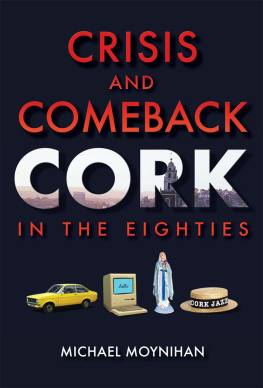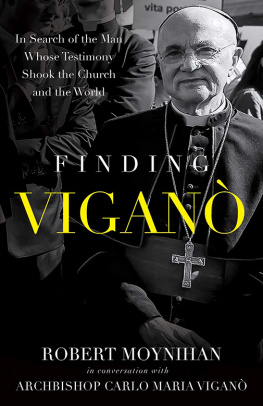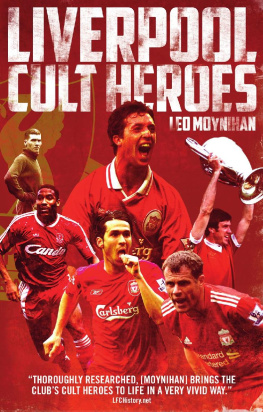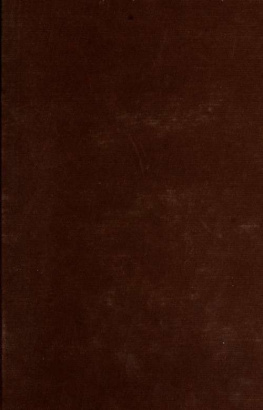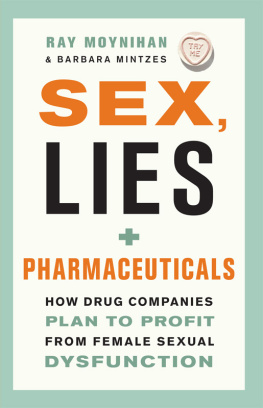First published in 1994 by
LEO COOPER
an imprint of
Pen & Sword Books Ltd,
47 Church Street, Barnsley, South Yorkshire S70 2AS
Copyright Michael Moynihan, 1994
A CIP catalogue record for this book is available
from the British Library
ISBN 0 85052 413 X
Typset by Chippendale Type Ltd,
Otley, West Yorkshire
in Linotron 10pt Plantin
Printed by Redwood Books,
Trowbridge, Wilts
The privilege of witnessing action in all three services during the Second World War, a civilian disguised in turn in the uniforms of the air force, army and navy, came my way only because I had been officially classified as a potential liability. Called up for a medical at the outset of the war, I had never imagined that the boyhood asthma I had largely outgrown would result in a GRADE III (three) in red ink on a buff certificate and the chairman of the examiners curt You will not be required. In the event I saw a great deal more of the war than I would otherwise have done, without once being hors de combat.
The chapters covering my eighteen months as a war correspondent, from Normandy to Japan, are based on diaries, letters and despatches (many of them, in those space-starved days, unused) and follow the pattern of seven war books I edited during the 1970s, the material for which came from the Imperial War Museums Department of Documents.
The task of fleshing out characters from the records they left, and from what I could find out about them, presented different problems when dealing with myself. Memory can be fickle and I have relied to a large extent on what I wrote at the time. For the rest, looking back over fifty years or more, it has been possible to see my younger self with a degree of objectivity, something of an innocent abroad due to my upbringing, fortunate to have had experiences thrust upon me.
Kathleen Carpenter came unexpectedly to tea the Sunday war was declared. We had it on the front lawn in the shade of the hawthorn and laburnum and through their branches glimpsed the barrage balloons riding at anchor in the blue.
The black-out curtains had long been in readiness but we had just squashed more putty around the basement grilles, where gas might be expected to settle and infiltrate. For ten minutes or so every evening we had been practising wearing our gas-masks and the drawing-room was full of strangled grunts as we viewed each other, a family circle of surrealist pigs.
Miss Carpenter was absolutely for the war but was somewhat grieved that the timing had meant the abandonment of the British Association conference in Dundee, where she was to have read a paper on perch. She had brought with her an expert on animal foods, his son and his sons fiance, who now sipped tea and nibbled cucumber sandwiches, a bit out of the chatter.
An occasional visitor to our Birkenhead home, Miss Carpenter wore thick-lensed glasses and would sometimes focus on you a baleful glare, head on one side, and come out with some cutting personal observation like You have an ugly neck. Mostly she was obsessed with herself. Once when I had answered the front door to find her there after a long absence, she had turned her back, cocked her head and breathed urgently, Dont say anything. Dont talk. I cant think of anything but that blackbird. Listen. But it was the study of freshwater fish that kept her from despair.
We had heard of Chamberlains announcement that Britain was in a state of war with Germany from a man in Lorne Road leaning over his gate in his shirtsleeves on our trek back from Divine Service at Park Grove Strict and Particular Baptist Chapel. My parents were Calvinists who had inherited their parents belief that only a predestined Elect would go to Heaven, that every word of the Bible was literally true, that Sunday was the Sabbath Day to be kept holy, that the theatre, cinema and even radio were devices of the Devil, and that sex was something that didnt bear talking about.
At school, ever since at the age of seven I had told them that Miss Ross had pronounced the parting of the Red Sea a natural phenomenon, I had been barred from Scripture lessons. I had to sit at the back of other classes, a fish out of water. One year my predicament was overlooked. I didnt like to remind anyone and I spent the weekly period lurking in the cloakroom, pretending to be looking for something in my locker or macintosh pocket when anyone passed through.
One winter afternoon when I was fifteen I went down town to the Plaza Cinema and for some time walked up and down in the slush outside, glancing at the stills and the dimly-lit carpeted foyer as though they were inducements to the Bottomless Pit. After a while I walked another mile or so to the Roxy. There were pictures of high-kicking chorus girls and I proceeded to the Scala where I gave God a third chance to divert me, before it was too late, from the primrose path. Sleet was falling and a gust of warm air, smelling of sickly-sweet disinfectant, enveloped me as a couple of boys shoved nonchalantly through the swing doors. I went in. It was a Will Hay film and I couldnt help laughing.
Going to chapel meant a half-hours walk (no bus-riding on Sunday) from the leafy suburbs through a seedy district of terraced houses and tenements, where what we called street arabs ran wild and barefoot. The chapel was a converted Dames school at the end of a countryfied lane, completely hidden from the outside world by high walls and an apple orchard. The glass of the windows was frosted and ribbed and through it the apple-boughs stirred in a breeze like fronds in an oceans depths. That bottle-green blur was the background to many a desperate childhood fantasy as the voice droned on (And here there are five points we have to consider ) and time crawled on leaden ticks of a wall-clock that had had its chime taken out.
Sometimes, in desperation, the two younger sisters and I, who formed a middle clique in our family of seven, would fashion nodding, gesticulating figures out of knotted handkerchiefs and have to let out the painfully-suppressed laughter in bursts of breathy coughing that only made things funnier. Miss Sloane, who sat with her brother in the pew in front of us and had a genuine cough of her own, would look round accusingly as though we were mocking her. She was a wizened little dressmaker who had once made me a flannel dressing-gown that smelt of fish. We were fascinated by the way she would manoeuvre a cough-sweet out of her handbag under cover of a handkerchief and inch it up her flat bosom to her mouth as though to have popped it in quite openly would have been an affront to God. After one service, in the lane where the meagre congregation would gather after the service for an exchange of heavy salutations, Mr Sloane had said, Well, youve got to get your life over with, havent you?
My father, who was secretary of a shipping company and ruled us with a firm but loving hand, alternated most Sundays at the desk under the pulpit with Mr Shaw, an elderly postman with a limp and glasses that slipped to the end of his long nose. He prepared his sermons on Saturday nights in his study, where rows of massive Concordances crowded shelves next to box-files containing bills and receipts and school reports and where there was a cane, not often used, tucked away behind a cupboard. His sermons were at least of reasonable length and lucidity. Mr Shaw read haltingly and interminably from the collected sermons of Mr Philpot or Mr Popham and his prayers would sinuously fasten on himself as the most miserable of sinners. His voice would choke and there would be a painful silence before he could get out a simile like worthless worm.



